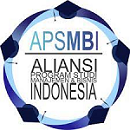PENGARUH RELIGIUSITAS, HALAL KNOWLEDGE, HALAL AWARENESS, DAN SIKAP KONSUMEN TERHADAP NIAT BELI PRODUK SKINCARE HALAL BLP SKIN
Abstract
The purpose of this study is to determine the effect of religiosity, halal knowledge, halal awareness and attitude on consumer’s purchase intention towards skincare product BLP Skin in Kota Surabaya. The data was collected from online questionnaires. This study used a quantitative method and was tested using SEM PLS by SmartPLS. The result of this study found that religiosity significantly influenced attitude and consumer intention to buy skincare BLP Skin. Halal knowledge also significantly influenced consumer’s attitude, and lastly halal awareness had significant influence towards consumer’s purchase intention. Meanwhile, the relationship between halal knowledge and purchase intention, halal awareness towards attitude, also attitude and purchase intention were found to be not significant. Finally, for the mediating effect in this study found that there were no mediation with purchase intention through attitude. The results give implication to firms competing in cosmetic industry. Halal awareness is one of the main factor that should be taken into account in promoting their product.
Downloads
References
Alam, S. S., Mohd, R., & Hisham, B. (2011). Is religiosity an important determinant on Muslim consumer behaviour in Malaysia? Journal of Islamic Marketing, 2(1), 83–96. https://doi.org/10.1108/17590831111115268
Ambali, A. R., & Bakar, A. N. (2014). People’s Awareness on Halal Foods and Products: Potential Issues for Policy-makers. Procedia - Social and Behavioral Sciences, 121(September 2012), 3–25. https://doi.org/10.1016/j.sbspro.2014.01.1104
Awan, H. M., Siddiquei, A. N., & Haider, Z. (2015). Factors affecting Halal purchase intention – evidence from Pakistan’s Halal food sector. Management Research Review, 38(6), 640–660. https://doi.org/10.1108/MRR-01-2014-0022
Azam, A. (2016). An empirical study on non-Muslim’s packaged halal food manufacturers: Saudi Arabian consumers’ purchase intention. Journal of Islamic Marketing, 7(4), 441–460. https://doi.org/10.1108/JIMA-12-2014-0084
Belch, G. E., & Belch, M. E. (2004). Advertising and Promotion: an Intergrated Marketing Communications Perspective. New York: McGraw-Hill Irwin.
Bhutto, M. Y., Ertz, M., Soomro, Y. A., Khan, M. A. A., & Ali, W. (2022). Adoption of halal cosmetics: extending the theory of planned behavior with moderating role of halal literacy (evidence from Pakistan). Journal of Islamic Marketing. https://doi.org/10.1108/JIMA-09-2021-0295
Briliana, V., & Mursito, N. (2017). Exploring antecedents and consequences of Indonesian Muslim youths’ attitude towards halal cosmetic products: A case study in Jakarta. Asia Pacific Management Review, 22(4), 176–184. https://doi.org/10.1016/j.apmrv.2017.07.012
DinarStandard. (2022). State of The Global Islamic Economy Report: Unlocking Opportunity.
Fishbein, M., & Ajzen, I. (1975). Belief, Attitude, Intention, and Behavior: an Introduction to Theory and Reasearch. MA-Addison-Wesley.
Garg, P., & Joshi, R. (2018). Purchase intention of “Halal” brands in India: the mediating effect of attitude. Journal of Islamic Marketing, 9(3), 683–694. https://doi.org/10.1108/JIMA-11-2017-0125
Hair, J. F., Risher, J. J., Sarstedt, M., & Ringle, C. M. (2019). When to use and how to report the results of PLS-SEM. European Business Review, 31(1), 2–24. https://doi.org/10.1108/EBR-11-2018-0203
Handriana, T., Yulianti, P., Kurniawati, M., Arina, N. A., Aisyah, R. A., Ayu Aryani, M. G., & Wandira, R. K. (2020). Purchase behavior of millennial female generation on Halal cosmetic products. Journal of Islamic Marketing, 12(7), 1295–1315. https://doi.org/10.1108/JIMA-11-2019-0235
IHLC, Dinar Standard, & Bank Indonesia. (2021). Indonesia Halal Markets Report 2021/2022. 1–118.
Junaidi, J. (2021). The awareness and attitude of Muslim consumer preference: the role of religiosity. Journal of Islamic Accounting and Business Research, 12(6), 919–938. https://doi.org/10.1108/JIABR-08-2020-0250
Khan, A., Arafat, M. Y., & Azam, M. K. (2022). Role of halal literacy and religiosity in buying intention of halal branded food products in India. Journal of Islamic Marketing, 13(2), 287–308. https://doi.org/10.1108/JIMA-08-2019-0175
Maichum, K., Parichatnon, S., & Peng, K.-C. (2017). The Influence of Attitude, Knowledge and Quality on Purchase Intention towards Halal Food: A Case Study of Young Non-Muslim Consumers in Thailand. IRA-International Journal of Management & Social Sciences (ISSN 2455-2267), 6(3), 354. https://doi.org/10.21013/jmss.v6.n3.p3
Mitchell, A. A., & Olson, J. C. (1981). Are Product Attribute Beliefs the Only Mediator of Advertising Effects on Brand Attitude? Journal of Marketing Research, 18(3), 318. https://doi.org/10.2307/3150973
Mukhtar, A., & Butt, M. M. (2012). Intention to choose Halal products: The role of religiosity. Journal of Islamic Marketing, 3(2), 108–120. https://doi.org/10.1108/17590831211232519
Nurhayati, T., & Hendar, H. (2020). Personal intrinsic religiosity and product knowledge on halal product purchase intention: Role of halal product awareness. Journal of Islamic Marketing, 11(3), 603–620. https://doi.org/10.1108/JIMA-11-2018-0220
Öztürk, A. (2022). The Effect of Halal Product Knowledge, Halal Awareness, Perceived Psychological Risk and Halal Product Attitude on Purchasing Intention. Business and Economics Research Journal, 13(1), 127–141. https://doi.org/10.20409/berj.2022.365
Peter, J. P. D., & Olson, J. C. (2010). Consumer Behavior and Marketing Strategy. McGraw-Hill Irwin.
Priyono, P. (2008). Metode Penelitian Kuantitatif (Edisi Revi). Sidoarjo: Zifatama Publishing.
SUDARSONO, H., & NUGROHOWATI, R. N. I. (2020). Determinants of the Intention to Consume Halal Food, Cosmetics and Pharmaceutical Products. Journal of Asian Finance, Economics and Business, 7(10), 831–841. https://doi.org/10.13106/jafeb.2020.vol7.no10.831
Sudaryanto, S., Courvisanos, J., Dewi, I. R., Rusdiyanto, R., & Yuaris, J. R. (2022). Determinants of purchase intention during COVID-19: A case study of skincare products in East Java. Innovative Marketing, 18(1), 181–194. https://doi.org/10.21511/im.18(1).2022.15
Sugiyono, D. (2013). Metode Penelitian Kuantitatif, Kualitatif, dan Tindakan.
Widyanto, H. A., & Sitohang, I. A. T. (2022). Muslim millennial’s purchase intention of halal-certified cosmetics and pharmaceutical products: the mediating effect of attitude. Journal of Islamic Marketing, 13(6), 1373–1394. https://doi.org/10.1108/JIMA-04-2020-0117
Yousaf, S., & Malik, M. S. (2013). Evaluating the influences of religiosity and product involvement level on the consumers. Journal of Islamic Marketing, 4(2), 163–186. https://doi.org/10.1108/17590831311329296

This work is licensed under a Creative Commons Attribution-NonCommercial-ShareAlike 4.0 International License.
Jurnal Bisnis dan Manajemen (JBM) allows readers to read, download, copy, distribute, print, search, or link to the full texts of its articles and allow readers to use them for any other lawful purpose. The journal allows the author(s) to hold the copyright without restrictions. Finally, the journal allows the author(s) to retain publishing rights without restrictions.
Authors are allowed to archive their submitted article in an open access repository, and the final published article in an open access repository with an acknowledgment of its initial publication in this journal









